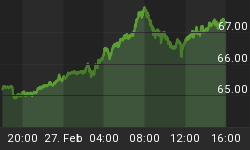Next week we'll find out if the longest-ever will-they-or-won't-they drama involving a virtually insignificant quarter-point interest rate change will amount to anything. But either way, US monetary policy is already a lot tighterthan it was a year ago.
The Fed's balance sheet, for instance, is a measure of how much new currency it is pumping into the banking system. And it's up only $79 billion, or 1.8%, in the past year. In real terms, that's flat to slightly negative.
Much bigger in the scheme of things is the dollar, which is up by about 20% versus most other major currencies (and a lot more versus emerging market currencies like the Brazilian real). A stronger currency makes loans harder to pay back (just as would a higher interest rate), exports harder to sell (because they're priced in a more expensive currency) and imports correspondingly cheaper.
Bearing this out is the latest reading for US import prices, which was down a shocking 11% year-over-year in August. Part of this was the falling price of oil, but not all of it. A lot is stuff coming in from weak-currency trading partners.
Goldman Sachs calculates that the above, along with the recent volatility in stock prices, works out to three 25 basis point increases in the Fed Funds rate.
Which makes those equity market gyrations look a lot like the taper tantrums that accompanied the end of the first couple of QE programs -- and led to more easing in short order. So the question becomes, can the Fed -- or any other major central bank -- ever again overtly tighten monetary policy, since just the hint of it seems to send the now-wildly-overleveraged speculating community into an epileptic seizure? The answer might be no, in which case 2016 will see some truly epic volatility as this notion percolates through the global financial psyche.















